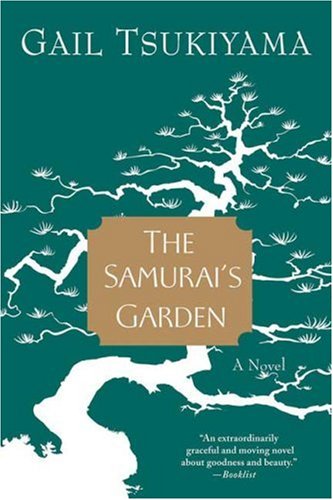
Gail Tsukiyama created a world I have since needed to visit in her novel The Samurai’s Garden . I end up there when trying to cope with the hard news of another shooting or kidnapping and seeking calm, peace or escape. I read her 1994 novel at least a year ago, yet the garden’s colors, shapes and moods in different weather live vibrantly in my imagery bank. The novel’s topics can shake and disturb peace–a father’s betrayal, the Rape of Nanking, leprosy, for example–yet the center holds in her novel, in the garden, in my heart.
The center holds because of Tsukiyama’s prose, smooth and elegant, and in her complex characters, pummeled by life and still calm. She shows us a son’s pain at his father’s abandoning him, shows us a towering love story, educates us about the devastating war between Japan and China in 1937-8, about leper colonies and Japanese village life all the while insisting both that readers comprehend the depth of pain and remain awake to the beauty of the world. Stephen, our young narrator who suffers from tuberculosis, works at this balance for himself–and brings us along.
Tsukiyama’s novel, says the San Jose Mercury News, “ranks with the best of predecessors Maxine Hong Kingston and Amy Tan. The finely detailed setting and compelling mix of characters combine in a story that will encourage many readings to come.” Tsukiyama was raised in San Francisco, the child of a Japanese father and a Chinese mother.
